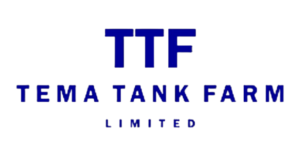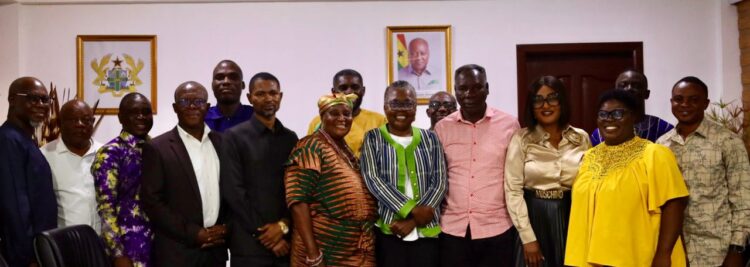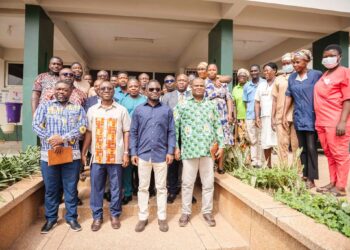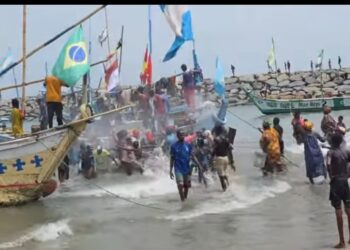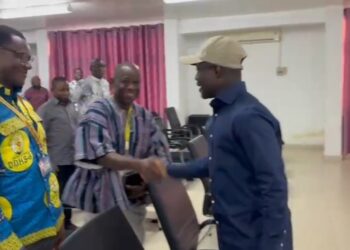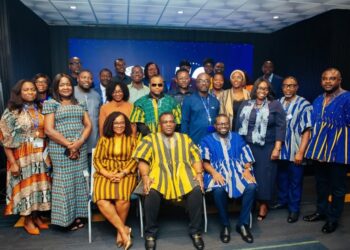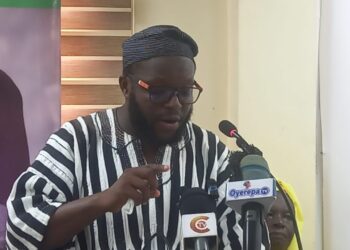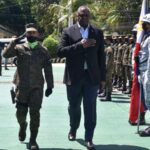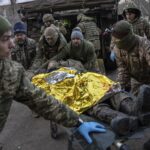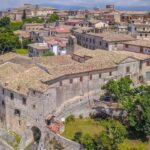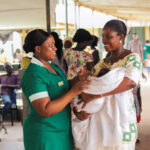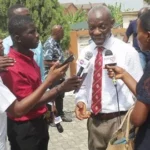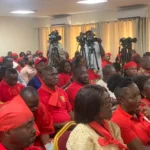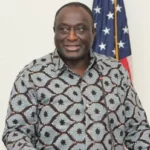Minister for Fisheries and Aquaculture Hon. Emilia Arthur on Friday (August 29, 2025) inaugurated the Ministerial Committee to develop the curriculum for the Anomabo Fisheries College.
Addressing the media shortly after the inauguration, the Minister explained that the inauguration is the beginning of the preparatory process, which she said is essential in designing an academic curriculum that links educational outcomes to the practical demands of the fisheries and aquaculture sector.
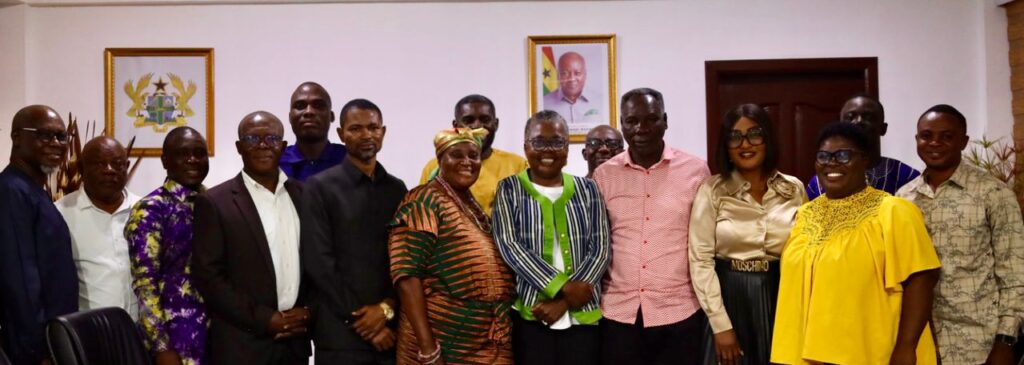
She added that this is to ensure that trainees are adequately equipped to meet the challenges and harness the opportunities of this evolving industry.
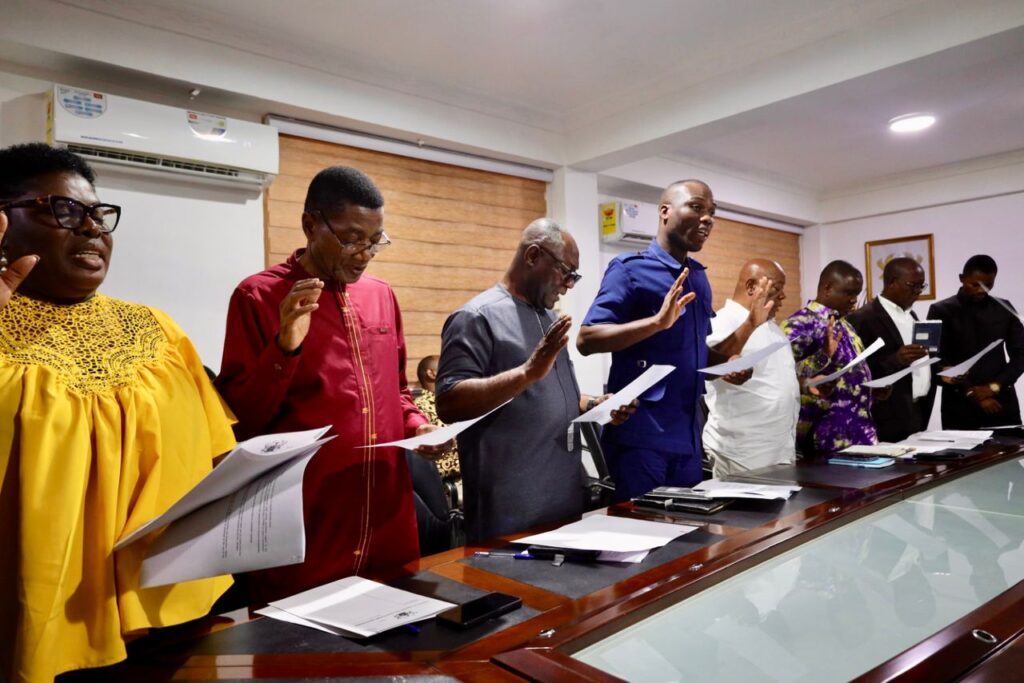
“The mandate of the Ministerial Committee is both vital and forward-looking. It is tasked with establishing the foundation for a transformative educational initiative that will play a key role in enhancing productivity and advancing performance within the fisheries and aquaculture sector”, she stressed.
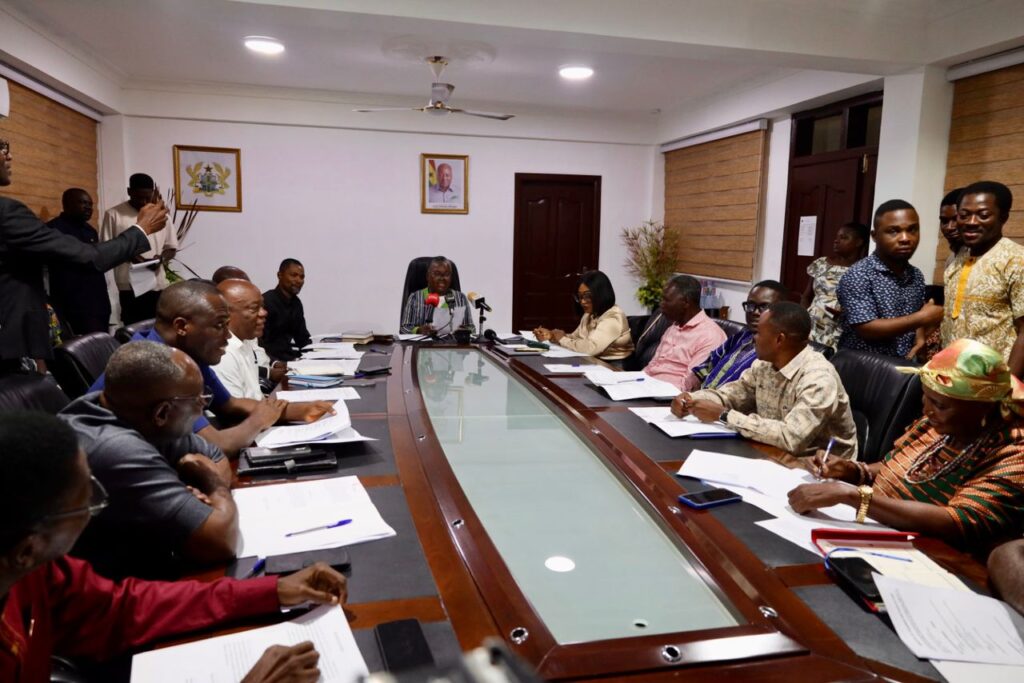
The Shama Member of Parliament also revealed that the Committee is tasked with developing an academic curriculum that is informed by industry needs and adheres to international best practices.
“As we embark on this significant undertaking, I encourage broader and active collaboration with stakeholders from research, academia, industry practitioners, government, and non-governmental organizations to ensure that the curriculum design is comprehensive, relevant, and inclusive”, she emphasized.
Below are Members of the committee
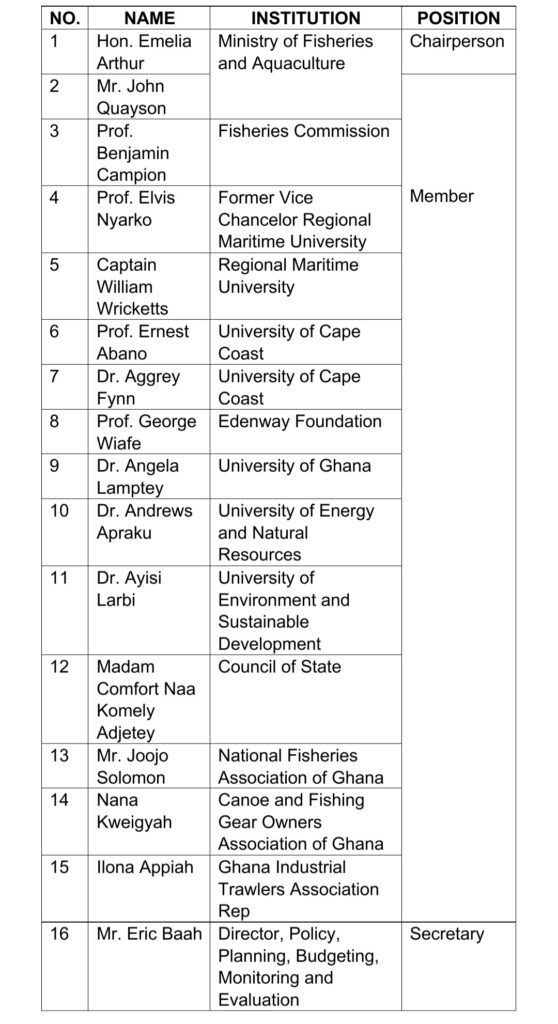
Read the full statement
MINISTRY OF FISHERIES AND AQUACULTURE
KEYNOTE ADDRESS BY HON. EMELIA ARTHUR, MINISTER FOR FISHERIES AND AQUACULTURE, FOR THE INAUGURATION CEREMONY OF THE MINISTERIAL COMMITTEE TO DEVELOP THE ACADEMIC CURRICULUM FOR THE ANOMABO FISHERIES COLLEGE
29TH AUGUST 2025
Distinguished Members
Directors of the Ministry and the Fisheries Commission
Friends of the Media
Good morning, and welcome to the inaugural ceremony of the Ministerial Committee to develop the academic curriculum for the Anomabo Fisheries College.
The Anomabo Fisheries College Project was the brain child of His Excellency, the late Prof. John Evans Atta Mills in 2012 as a noble intervention to enhance the expertise and skills of emerging professionals to meet the critical needs of the fisheries sector. The Project has stalled over the years due to financial constraints and the low capacity of Project contractors. H.E. the President upon assumption of office in 2025, has renewed the commitment of the Government to completing critical infrastructure components and operationalizing the Anomabo Fisheries College by the first quarter of 2025. The establishment of the institution reflects the Government’s commitment to promoting knowledge and skill development in the fisheries and aquaculture sector, to equip the workforce with the necessary capacity to manage the industry effectively.
Phase I of the project comprises a 2-storey Classroom Block, 2- storey Administration Block, Laboratory Block and Hostel Block. The bungalow for the Principal and staff quarters are at various stages of completion. Work is progressing steadily to ensure that critical components are completed, furnished and operationalized for the first intake of students and trainees by the first quarter of 2026.
As part of the preparatory process, it is essential to design an academic curriculum that links educational outcomes to the practical demands of the fisheries and aquaculture sector, ensuring that trainees are adequately equipped to meet the challenges and harness the opportunities of this evolving industry.
The mandate of this Ministerial Committee is both vital and forward-looking. It is tasked with establishing the foundation for a transformative educational initiative that will play a key role in enhancing productivity and advancing performance within the fisheries and aquaculture sector.
The Committee is tasked with developing an academic curriculum that is informed by industry needs and adheres to international best practices. As we embark on this significant undertaking, I encourage broader and active collaboration with stakeholders from research, academia, industry practitioners, government, and non-governmental organizations to ensure that the curriculum design is comprehensive, relevant, and inclusive.
Specifically, the Committee is tasked to among others:
i. Review existing models of fisheries and aquaculture training institutions in Ghana and internationally.
ii. Determine an appropriate name for the college
iii. Define the vision, mission, and core values of the College.
iv. Propose an organisational and governance structure (including roles of the Board, Academic Council, Management, and Administrative units)
v. Identify priority academic programmes (diploma, degree, certificate, and short courses) and their respective learning outcomes
vi. Develop a draft curriculum framework (modules, course content, credit hours, and assessment methods)
vii. Recommend staffing requirements (academic, administrative, and technical staff)
viii. Suggest strategies for industry linkage, internship, and community engagement
ix. Propose mechanisms for quality assurance, accreditation, and continuous curriculum review.
x. Outline resource and other infrastructure needs to support the programmes.
xi. Submit a final report with recommendations for consideration by the Ministry.
It is important to learn from successful international models while tailoring those insights to Ghana’s unique context. Given the constantly evolving demands of the fisheries and aquaculture sector, we would appreciate proposals on strategies for partnerships, internships, and community engagement that clearly demonstrate how each element can strengthen the link between theoretical learning and practical experience, thereby providing students with a well-rounded education that fully prepares them to provide concrete strategies to deal with the challenges of the sector.
I am confident that the collective expertise, dedication, and commitment of each Committee Member will lead to the development of a curriculum that meets the standards of the Ghana Tertiary Education Commission and the Technical and Vocational Education and Training framework. The work you undertake over the next two months will be instrumental in shaping the future of our fisheries and aquaculture industry.
In conclusion, the establishment of the Anomabo Fisheries College and the development of its academic curriculum represent a pivotal moment for the future of our fisheries and aquaculture sector. The challenges we face are significant, but they also present us with immense opportunities for growth, innovation, and sustainability. With the collective efforts of this esteemed Ministerial Committee, we have the chance to create a transformative educational platform that not only addresses current industry needs but also anticipates future developments.
Thank you for your attention.
